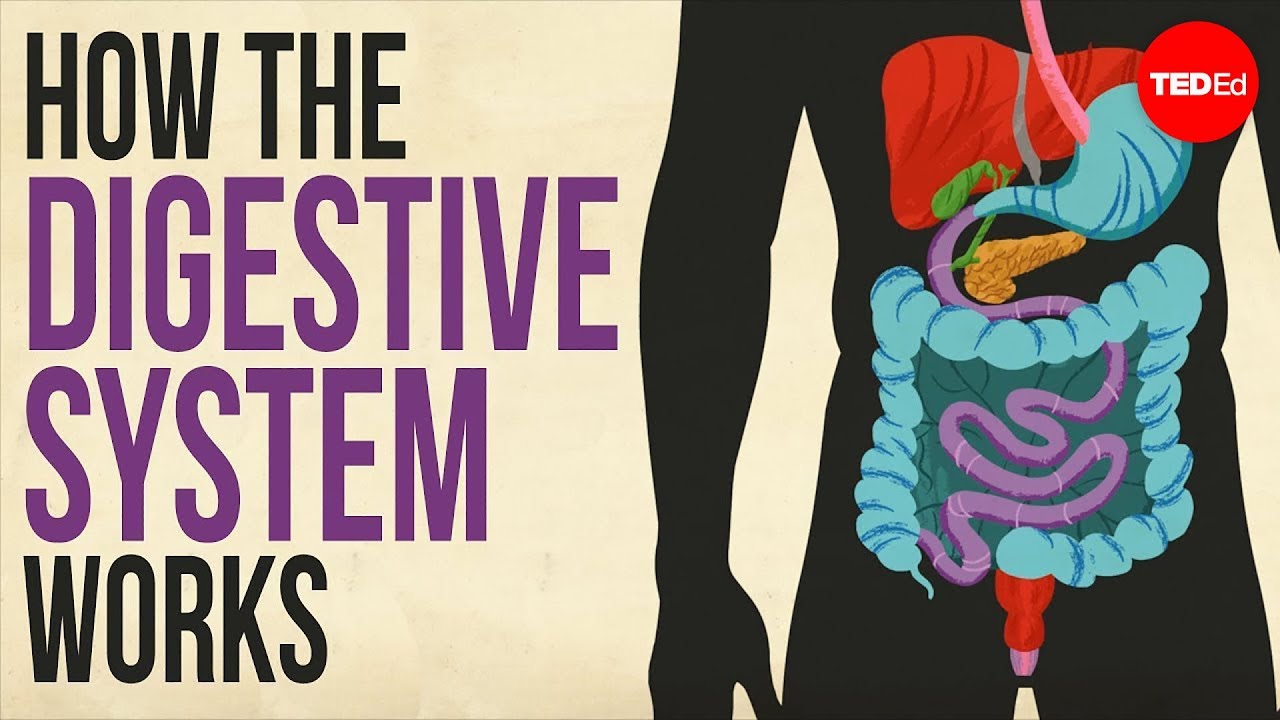Understanding The Connection Between Nutrition And Digestive Health - A Complete Guide
In this article, we will discuss understanding the connection between nutrition and digestive health, and how making dietary changes can improve your digestive health. Good nutrition is essential for overall health, and this includes digestive health.
Author:Suleman ShahReviewer:Han JuMar 23, 202364 Shares947 Views

In this article, we will discuss understanding the connection between nutrition and digestive health, and how making dietary changes can improve your digestive health. Good nutrition is essential for overall health, and this includes digestive health.
The digestive system plays a crucial role in breaking down food and absorbing nutrients, so it is vital to maintain a healthy digestive system to ensure that you are getting the nutrients you need for optimal health.
Explain The Process Of Digestion In Human Beings
The digestive system is a complex network of organs and tissues that work together to break down the food you eat and convert it into energy. The digestive system starts in the mouth, where the process of digestion begins as you chew your food and mix it with saliva.
From there, the food travels down the esophagus and into the stomach, where it is mixed with digestive enzymes and acids that break it down further. Once the food is broken down in the stomach, it moves into the small intestine, where nutrients are absorbed into the bloodstream.
The small intestine is lined with tiny finger-like projections called villi, which increase the surface area available for nutrient absorption. The large intestine, or colon, then removes any remaining water and electrolytes from the food waste before it is eliminated from the body.
Understanding The Connection Between Nutrition And Digestive Health
The foods you eat can have a significant impact on your digestive health. A diet that is high in processed foods, saturated fats, and sugar can lead to digestive issues such as bloating, constipation, and diarrhea.
On the other hand, a diet that is rich in fiber, whole grains, and fresh fruits and vegetables can promote digestive health and prevent digestive issues. Fiber, for example, is essential for healthy digestion.
It helps to keep the digestive system running smoothly by adding bulk to the stool and promoting regular bowel movements. Fiber also feeds the beneficial bacteria in the gut, which can improve overall digestive health.
Probiotics, which are live bacteria and yeasts that are good for your health, are another important component of digestive health. They can be found in fermented foods like yogurt, kefir, sauerkraut, and kimchi, as well as in supplement form.
Probiotics can help to balance the bacteria in the gut and improve digestion. Prebiotics are another important component of digestive health.
Prebiotics are non-digestible fibers that serve as food for the beneficial bacteria in the gut. They can be found in foods like garlic, onions, leeks, asparagus, and bananas.
Dietary Changes For Improved Digestive Health
Making dietary changes can be a powerful way to improve digestive health. Here are some dietary changes that can help promote digestive health:
- Eat a diet that is rich in fiber. This can include whole grains, fruits, vegetables, nuts, and seeds.
- Include probiotic-rich foods in your diet, such as yogurt, kefir, sauerkraut, and kimchi.
- Consume prebiotic-rich foods, such as garlic, onions, leeks, asparagus, and bananas.
- Drink plenty of water to keep the digestive system running smoothly.
- Avoid processed foods, saturated fats, and sugar.
- Chew your food thoroughly to aid in digestion.
- Eat smaller, more frequent meals to help regulate digestion.
Tips For Maintaining Good Digestive Health
In addition to making dietary changes, there are other things you can do to maintain good digestive health. Here are some tips to help keep your digestive system healthy:
Get Regular Exercise
Exercise can help keep the digestive system running smoothly by improving circulation and promoting regular bowel movements.
Manage Stress
Chronic stress can have a negative impact on digestive health, so it's important to find ways to manage stress, such as through meditation, yoga, or deep breathing exercises.
Get Enough Sleep
Lack of sleep can also affect digestive health, so it's important to aim for 7-9 hours of sleep each night.
Avoid smoking and excessive alcohol consumption. Both smoking and excessive alcohol consumption can have a negative impact on digestive health.
Avoid Overuse Of Antibiotics
Antibiotics can disrupt the balance of bacteria in the gut, which can lead to digestive issues. Try to avoid overusing antibiotics whenever possible.
Stay Up To Date With Health Screenings
Regular health screenings, such as colonoscopies, can help detect any potential digestive issues early on.
Seek Medical Attention For Digestive Issues
If you are experiencing persistent digestive issues, such as bloating, gas, or abdominal pain, it's important to seek medical attention to determine the underlying cause and receive appropriate treatment.
In short, good nutrition is essential for digestive health, and making dietary changes can help promote a healthy digestive system.
By incorporating a diet that is rich in fiber, probiotics, and prebiotics, and by avoiding processed foods and sugar, you can support a healthy digestive system and improve your overall health and well-being.
Additionally, by maintaining a healthy lifestyle and seeking medical attention for persistent digestive issues, you can help keep your digestive system running smoothly and maintain optimal health.
Understanding the connection between nutrition and digestive health is key to achieving and maintaining good digestive health.

How your digestive system works - Emma Bryce
What Are The Common Disorders Of The Digestive System?
There are several common disorders of the digestive system that can affect individuals of all ages. These disorders can range from minor discomfort to serious medical conditions. Some of the most common digestive disorders include:
Gastroesophageal Reflux Disease (GERD)
GERD is a condition in which stomach acid flows back into the esophagus, causing discomfort and sometimes damage to the lining of the esophagus.
Irritable Bowel Syndrome (IBS)
IBS is a disorder that affects the large intestine and can cause a range of symptoms, including abdominal pain, bloating, diarrhea, and constipation.
Inflammatory Bowel Disease (IBD)
IBD is a group of disorders that cause inflammationof the digestive tract, including ulcerative colitis and Crohn's disease.
Peptic Ulcers
Peptic ulcers are open sores that develop on the lining of the stomach or small intestine and can cause abdominal pain, bloating, and discomfort.
Gallstones
Gallstones are hardened deposits of digestive fluid that can form in the gallbladder, causing pain and discomfort in the abdomen.
Celiac Disease
Celiac disease is a condition in which the body's immune system reacts to gluten, a protein found in wheat, barley, and rye, leading to inflammation of the small intestine and a range of digestive symptoms.
Diverticulitis
Diverticulitis is a condition in which small pockets or pouches in the colon become inflamed, causing abdominal pain and discomfort.
Constipation
Constipation is a common condition in which bowel movements become less frequent and stools become difficult to pass.
Diarrhea
Diarrhea is a condition in which stools become loose and watery, and may occur more frequently than usual.
If you experience persistent symptoms of any of these digestive disorders, it's important to seek medical attention to determine the underlying cause and receive appropriate treatment.
In some cases, lifestyle changes and dietary modifications can help alleviate symptoms, while in other cases, medication or surgery may be necessary.
People Also Ask
How Does Fiber Affect Digestive Health?
Fiber is important for digestive health as it adds bulk to the stool, helps prevent constipation, and promotes regular bowel movements.
What Are Probiotics And How Do They Benefit Digestive Health?
Probiotics are live microorganisms that can benefit digestive health by promoting the growth of healthy bacteria in the gut, improving digestion, and boosting the immune system.
Can Certain Foods Worsen Digestive Issues?
Yes, certain foods can worsen digestive issues such as bloating, gas, and abdominal discomfort.
Conclusion
In conclusion, understanding the connection between nutrition and digestive health is crucial for maintaining optimal health.
The foods you eat can have a significant impact on your digestive system, and making dietary changes can help to promote digestive health and prevent digestive issues.
By incorporating a diet that is rich in fiber, probiotics, and prebiotics, and by avoiding processed foods and sugar, you can support a healthy digestive system and improve your overall health and well-being.

Suleman Shah
Author
Suleman Shah is a researcher and freelance writer. As a researcher, he has worked with MNS University of Agriculture, Multan (Pakistan) and Texas A & M University (USA). He regularly writes science articles and blogs for science news website immersse.com and open access publishers OA Publishing London and Scientific Times. He loves to keep himself updated on scientific developments and convert these developments into everyday language to update the readers about the developments in the scientific era. His primary research focus is Plant sciences, and he contributed to this field by publishing his research in scientific journals and presenting his work at many Conferences.
Shah graduated from the University of Agriculture Faisalabad (Pakistan) and started his professional carrier with Jaffer Agro Services and later with the Agriculture Department of the Government of Pakistan. His research interest compelled and attracted him to proceed with his carrier in Plant sciences research. So, he started his Ph.D. in Soil Science at MNS University of Agriculture Multan (Pakistan). Later, he started working as a visiting scholar with Texas A&M University (USA).
Shah’s experience with big Open Excess publishers like Springers, Frontiers, MDPI, etc., testified to his belief in Open Access as a barrier-removing mechanism between researchers and the readers of their research. Shah believes that Open Access is revolutionizing the publication process and benefitting research in all fields.

Han Ju
Reviewer
Hello! I'm Han Ju, the heart behind World Wide Journals. My life is a unique tapestry woven from the threads of news, spirituality, and science, enriched by melodies from my guitar. Raised amidst tales of the ancient and the arcane, I developed a keen eye for the stories that truly matter. Through my work, I seek to bridge the seen with the unseen, marrying the rigor of science with the depth of spirituality.
Each article at World Wide Journals is a piece of this ongoing quest, blending analysis with personal reflection. Whether exploring quantum frontiers or strumming chords under the stars, my aim is to inspire and provoke thought, inviting you into a world where every discovery is a note in the grand symphony of existence.
Welcome aboard this journey of insight and exploration, where curiosity leads and music guides.
Latest Articles
Popular Articles
